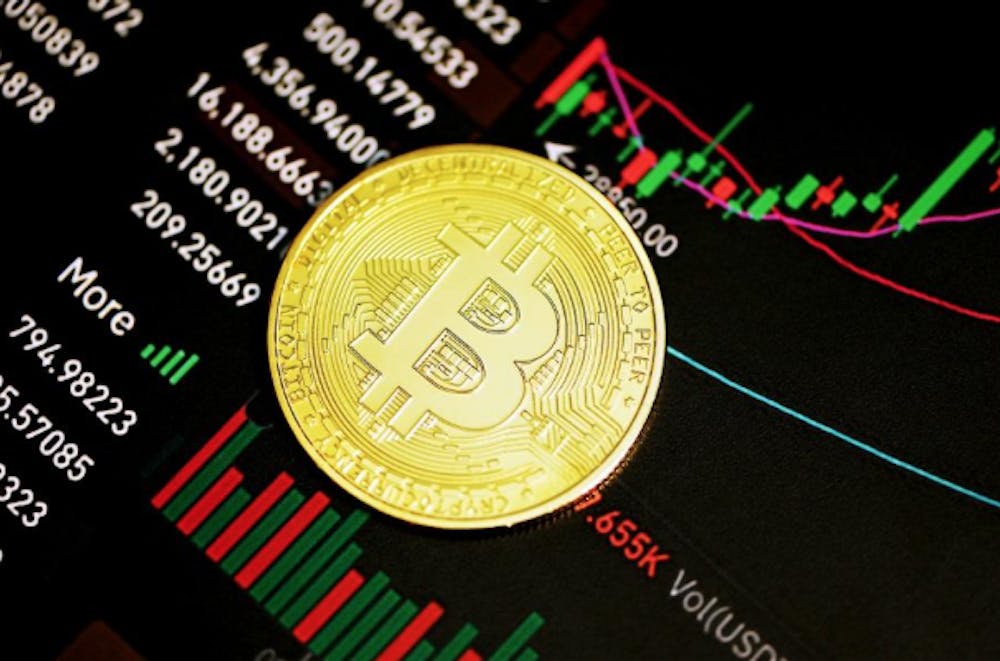The crypto market is known for its extreme volatility, causing experts to compare it to a never-ending roller-coaster, complete with the usual ups and downs, unexpected twists and turns and the occasional loops that make the ride extra thrilling and sometimes downright frightening. Whether you enjoy adrenaline-inducing experiences or not, this is what cryptocurrencies have been serving ever since their inception.
So, if you’re wondering at what point of this wild journey we find ourselves, we can say with absolute certainty that we’re currently on the ascending section of the roller-coaster, judging by the major gains in the Bitcoin price over the past few months and the recent boom above $60K registered in the last days of February.
Binance data shows that despite some setbacks, the leading asset was still holding strong above the threshold at the time of writing, wrapping up a spectacular month as it moved towards the next stage of the saga which many assume it’s going to be even more intense and cause strong emotions in the crypto community.
On an ascending path to record-breaking figures
Bitcoin’s thrill ride is going uphill at the moment, passing one milestone after another in its ascent. The month of February saw the crypto king rise to levels it last reached two years ago before the latest crypto winter caused the market to freeze over.
On February 28, Bitcoin shot up beyond the crucial price point of $60K, rising to as much as $63,477 in just a couple of hours. That put Bitcoin within a short distance of its record high of $68,789. But as with all great roller-coaster rides, after mounting a steep hill you have to prepare for an equally steep drop.
The trailblazing asset could not climb any higher as the rally was curtailed by an immediate price correction. This translated into a 7% plunge which briefly caused Bitcoin to fall below $60K. The sell-off also led to a massive liquidation frenzy of over $700 million within 24 hours and significant price drops for other digital assets like Solana, Cardano and Dogecoin which lost between 4 and 9% in value.
The decline was thought to be at least partly triggered by the glitches in the Coinbase app which caused users to see zero balance in their accounts or experience difficulties logging in. Nonetheless, Bitcoin did not stay below $60K for long as it soon rose up to higher values. At press time, Bitcoin was exchanging hands at $62,020, up by 44% in the past month.
During the same timeframe, Ethereum, the second largest crypto in the market, also experienced its fair share of ups and downs, although its slopes were somewhat milder. The altcoin’s price went up to $3,480, inching closer to its former high of $4,891, only to fall back to $3,267 a few hours later. The asset then recovered and was trading at $ 3,366 at the time of writing.
The forces driving Bitcoin’s twists and turns
Of course, Bitcoin is no stranger to sudden spikes in price as it’s no stranger to dramatic downturns. Its entire 15-year price history has been nothing but a demonstration of extreme volatility and erratic behavior, with prices swinging wildly between dizzying highs and staggering lows.
Experts are still debating on the factors that fueled Bitcoin’s boom this time around, but it is generally believed that the upcoming halving and the approval of spot Bitcoin exchange-traded funds had the biggest contribution to the price appreciation.
As some may already know, Bitcoin is programmed to undergo a 50% reduction of the reward miners receive for processing transactions every 210,000 blocks which usually corresponds to a four-year period – an event known as halving. This helps control the rate at which new coins are released into circulation and ensures scarcity, influencing the supply-demand dynamics and therefore the Bitcoin price.
Historical data reveals that each of the three halving Bitcoin has undergone so far has had a positive impact on its price performance. More precisely, the scarcity caused by the reward reduction causes an increase in demand for the asset and consequently pushes its price up. The rising trend generally starts a few months before the halving takes place and picks up pace in the subsequent months.
With the next Bitcoin halving scheduled to take place in April 2024, one could easily associate the price rise experienced by Bitcoin since the beginning of the year with the effect of the impending reduction.
The other major driver of growth for Bitcoin is the launching of the first-ever spot Bitcoin ETFs. On January 10, the U.S. Securities and Exchange Commission gave the green light for 11 spot Bitcoin ETFs from major asset managers like BlackRock, Grayscale and Invesco. This was seen as a watershed moment in crypto’s history, ensuring direct exposure to the asset from institutional investors and enhancing the legitimacy of digital assets in the financial marketplace.
Since launch, the 11 spot Bitcoin ETFs saw their trading volumes reach staggering figures, with their current record standing at $7.7 billion in one trading day. BlackRock's Bitcoin ETF (IBIT) was the fourth most traded ETF in the U.S. and analysts predict that the demand for spot Bitcoin ETFs is only going to increase as the year progresses.
Enjoy the crypto ride
All in all, February was a month of big gains for Bitcoin and the rest of the crypto market. Even if volatility is still very much a part of crypto’s nature and not everyone enjoys the bumpy ride it provides, we can’t help but appreciate the rising tides and high winds in Bitcoin’s sails. Besides, the most optimistic of experts predict that the winning streak could stretch further into the following months and transform into the biggest bull run in crypto’s history. As the crypto rollercoaster continues, you better buckle up for some interesting developments in the near future and prepare to make the most of it.





The Daily News welcomes thoughtful discussion on all of our stories, but please keep comments civil and on-topic. Read our full guidelines here.